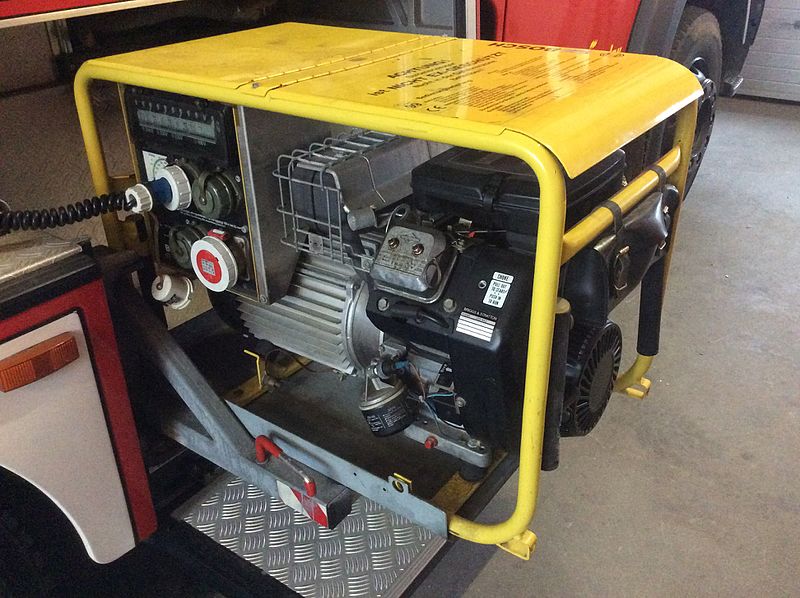When it comes to buying the whole house generators you have to learn more about the various types on the market. The use of backup power supply protects you from tripping over things in the dark. You can run your day as usual with the help of a generator that will power up all essentials when utility power fails. These days, it is very tough to live without electricity. We use it for running various appliances in the house. There are many types of whole house generators you can find on the market as follows:
• Gasoline Generators
• Diesel Fuel Generators
• Bio-Diesel Generators
• Emulsified Diesel Generators
• Propane Gas (Vapor And Liquid) Generators
• Natural Gas Generators
Gasoline Generators
The gasoline generators are the most popular due to their cost. They are available in various makes and models and are a common sight at homes, offices and commercial businesses. During a power outage caused by a hurricane or flooding, it is not possible for one to get out of the house to buy more gasoline when it runs out. At the gas station, electric power is required to pump the gasoline. It also evaporates fast and you can be out of the stock soon. These generators are usually offered in comparatively smaller sizes and are a good choice when you are looking for a portable unit.
Gasoline generators may be cheap but the cost of gasoline is higher when you compare it with natural gas or propane or diesel. The emissions produced by these units are also higher and they may not last you longer as compared to other types of generators. If you live in a cold climate your unit will give problems during startup.
Diesel Fuel Generators
Diesel fuel generators use diesel which is not as flammable as gas or propane or natural gas. In this sense, it is a safer option except that it makes a lot more noise than other types of generators. Diesel is sold at every gas station and it is also cheaper than gasoline. Manufacturers design these units to be more powerful and long-lasting. They are usually encased in steel or iron frames and come with wheels and handles for easy maneuvering. The engines installed in these generators are robust and designed for rough use. They are also easy to start in the cold season.
In certain states, diesel is offered at a lower rate for farmers to encourage the use of diesel generators. When it comes to storage it has double the shelf life as compared to gasoline. One can store it for as long as two years. Due to the higher emissions, there is an environmental concern about these units and in some regions, there is a set time limit to their usage. During a power outage, it is not possible to pump diesel.
If you are using un-emulsified diesel, the moisture in the fuel can ruin the engine. So it is good not to operate it near lakes and rivers. In the past, the diesel generators were large and hence were not portable but now the designs have improved a lot and you can get a portable diesel unit for the house or to run your shop. Regular maintenance is required to keep the unit running smoothly.
Bio-Diesel Generators
Biodiesel fuel is a mix of diesel and other biological sources, such as vegetable oil soya bean oil or animal fat. It consists of long-chain alkyl (methyl, ethyl, or propyl) esters. It has more environmental benefits and burns with lower emissions while making less waste. In comparison to diesel, it is more environmentally friendly. It has the same shelf life as diesel and can be hard to find in some areas. Biodiesel fuel is 80% diesel and 20% other oils. Silent specifications of these generators range from 75dbA to 60dbA.
Emulsified Diesel Generators
Emulsified diesel generators run on a mixture of diesel fuel and water that is well blended with a mixing agent. It is very much like diesel or biodiesel generators. This type of diesel fuel is also environmentally friendly as it has fewer emissions than diesel and it uses less fossil fuel. The shelf life is two years or less.
Propane Gas (Vapor And Liquid) Generators
Propane is a clean gas and has lesser emissions. The propane generators are relatively quieter and the gas has a longer shelf life as compared to all type of diesel fuels and gasoline. This type of fuel is readily available during a power outage and can be stored in any quantity. In diesel engines, wet stacking can pose a problem when the unused diesel enters the exhaust system. With propane units, there is no such an issue. Propane generators are slightly more expensive but are designed to be more durable. The quiet operation, easy to store gas, and the ability to start well in cold climates make propane units more popular. If you buy a propane generator make sure you get it installed by a professional technician and give it regular maintenance. The design and construction are more complicated but they have higher functionality. These days, you can buy units that run on propane gas and natural gas, so if you run out of propane you can simply hook it up with the kitchen gas line.
Natural Gas Generators
Natural gas whole house generators are most popular as the gas is available almost everywhere. You do not have to run out of the house during a power outage to get more fuel for your generator as there is a constant supply of natural gas in the kitchen gas line. The only downside is that you cannot move the unit as it will be installed to a gas line. Kohler, Generac, and Briggs and Stratton make natural gas generators that also run on propane. These have the high functionality and are a preferable choice of the American families. The cost of installation may be higher but the unlimited supply of fuel is most beneficial.
These days, there are hardly any whole house generators that run solely on propane. The dual fuel generators that run on either gasoline or propane are very much in demand and lately, there are the tri-fuel generators on the market that you may also want to look into.

